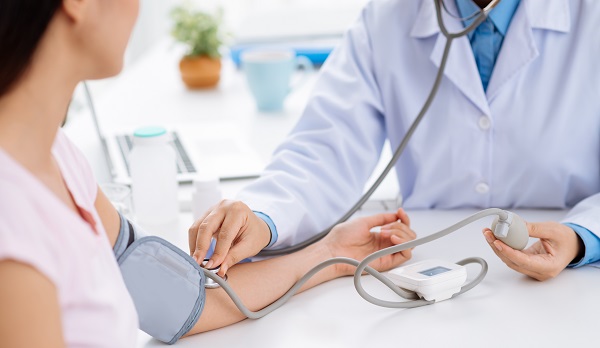
In recognition of World Hypertension Day held on Saturday 14 May 2016, the Luxembourg Ministry of Health issued a set of guidelines to raise awareness of this silent disease.
14 May was declared World Hypertension Day by the World Hypertension League, as a means of highlighting the damage to vital organs such as the heart, brain and kidneys that high blood pressure can entail, causing serious complications such as heart attacks and failure or strokes.
Hypertension is characterised as systolic blood pressure ≥ 140 mmHg and/or diastolic blood pressure ≥ 90 mmHg, requiring taking anti-hypertensive drugs.
In the Grand Duchy, cardiovascular disease accounts for the leading cause of death and in 2014, circulatory system diseases were responsible for 1,189 deaths, representing 31.3% of all deaths (34.7% for women and 28.1% among men).
A national Oriscav study conducted from 2007-2008 showed that more than half of residents have hypertension by the age of 50, 2/3 of which said they did not follow treatment. A later study by the Luxembourg Institute of Health (LIH), which was presented and rewarded by the American Heart Association during the EPI/Lifestyle conference in March 2016, revealed that 31% of Luxembourg residents aged 25-65 are hypertensive. Half are unaware of their condition whilst half of those who do know do not adequately control and treat the disease. The research further showed a higher prevalence among people living in the south and west of the country, suggesting socio-economic, cultural and deomgraphic factors play a role.
The study therefore led to the issuing of a number of recommendations in terms of public health, particularly with regard to health professionals and to the general population:
- Avoid Gaining Weight: Maintain a healthy weight and check with your doctor to prescribe you a diet to help you lose extra kilos.
- Do Physical Exercise: Brisk walking performed for around 45 minutes three to four times a week can help lower blood pressure.
- Do Not Practice Exercises Requiring Lifting Weights: Weightlifting or intense sports exercises can raise blood pressure. Instead favour moderate intensity aerobic exercises such as walking, cycling and swimming.
- Avoid Excess Salt: Eliminate high-salt foods such as processed meats, crisps as well as certain canned food such as soups and ready meals. Avoiding these foods is one way of easily and quickly restricting salt intake, which in turn will increase the efficiency of any medication taken and will avoid water being retained in the arteries which contributes to higher blood pressure.
- Do Not Consume More than 60 ml of Alcohol a Day: More than 90 ml of alcohol can have a harmful effect on blood pressure. 30 ml is about equal to a beer or two glasses of wine.
- Stop Smoking: Cigarettes can worsen problems related to blood pressure and cause serious heart problems. Tobacco causes a contraction of the arteries and, in the long term, reduces the elasticity of the arterial walls, which turned up the heat. It is also responsible for the development of atherosclerosis, which further obstructs advantage of the vessels.
- Do Not Check Blood Pressure too Often: Although it is recommended to monitor blood pressure, there is no advantage to checking too often. This may make you more anxious and conversely raise your blood pressure or cause an obsession. If your blood pressure is usually normal, check it once every two weeks or do it when you feel discomfort.
- Do Not Ignore the Diagnosis: Ignoring the symptoms or not following the prescribed treatment can have serious consequences.
- Get a Device to Take Your Blood Pressure at Home: First get the device checked at a clinic to ensure the accuracy of the values. Most pharmacies have a device for measuring blood pressure on the spot. If you choose this option, follow the guidelines to avoid distorting values. For each reading, record the values to be able to share them with your doctor at your next visit.
- Eat More Fruits and Vegetables: The potassium content in fruit has a beneficial effect and helps lower blood pressure.
- Avoid Stressful Situations: Try to avoid situations that bother you if they are not worth the trouble.
- Practice a Relaxation Method: For some people, transcendental meditation or yoga are efficient methods for relaxation. However, to experience the benefits, the method must be performed regularly (ie at least two or three times a week).
When you discover a systolic blood pressure of 200 mm Hg or higher and a diastolic pressure of 120 mm Hg or more, see a doctor immediately. Also consult a doctor if your systolic pressure is consistently over 140 mm Hg and diastolic pressure greater than 90 mm Hg, when you have headaches localised at the neck and if you are short of breath after a slight effort.
Photo by Shutterstock








